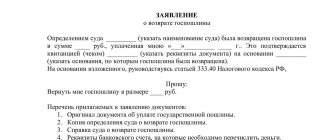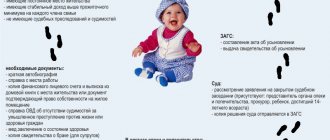Unfortunately, there are situations in life when families break up. I think it will be useful for many to learn how to file for divorce in Belarus, what documents are needed for this and how much it will cost.
Some statistics: In 2021, 8,881 marriages were concluded in the Republic of Belarus. At the same time, there were 5,081 divorces. The statistics speak for themselves - for every 2 marriages there is at least one divorce.
At the time of filing documents for divorce, my family with my first husband existed only legally. We did not live together; in fact, we each had a new family. Therefore, the divorce procedure was only a formality. There are two options for completing this procedure:
- through the registry office - if there are no property disputes and children under the age of 18;
- through the court - if there are minor children or issues regarding the division of property have not been agreed upon.
Our child was about 5 years old at that time. Therefore, I had to go to the court of our district and find out all the nuances.
Divorce in the registry office
Divorce by the Civil Registry Office is possible only if the husband and wife have: [∗] Article 351 of the Code of the Republic of Belarus on Marriage and Family
- there is a mutual desire to dissolve the marriage;
- no minor children;
- there are no disputes about the division of joint property.
Divorce through the registry office is carried out on a day agreed upon with the spouses, but no earlier than one and no later than two months from the date of submission of documents. [∗] subparagraph 5.61 of the list of administrative procedures carried out by government bodies and other organizations upon applications from citizens, approved by the Decree of the President of the Republic of Belarus dated 04/26/2010 No. 200
Documents that need to be submitted to the registry office for divorce:[∗] subparagraph 5.61 of the list of administrative procedures carried out by government bodies and other organizations upon applications from citizens, approved by Decree of the President of the Republic of Belarus dated April 26, 2010 No. 200
- joint application of the spouses The application can be written when receiving documents. In it, the spouses must indicate that they: – have mutual consent to divorce; – there are no common minor children; – there is no dispute about joint property;
- passports or other documents identifying the spouses;
- an application from one of the spouses to register a divorce in his absence - if it is impossible for him to appear at the registry office;
- document confirming payment of payment 4 basic amounts.
Documents must be submitted to the registry office at the place of residence or place of stay of the spouses or one of them.[∗] Article 2243 of the Code of the Republic of Belarus on Marriage and Family
If the spouse who changed his surname upon marriage wants to be given a premarital surname after divorce, he indicates this in the application for registration of divorce.[∗] Article 2243 of the Code of the Republic of Belarus on Marriage and Family
A marriage is dissolved by entering into the passports or other identification documents of the spouses a corresponding mark on the registration of divorce.[∗] Article 2241 of the Code of the Republic of Belarus on Marriage and Family
If a spouse is considered missing
This situation is regulated by the same article No. 19 of the Civil Code of the Russian Federation as the previous one. Therefore, the list of documents submitted to the registry office is virtually identical to the previous case (except that the missing spouse cannot send his own application for divorce). And instead of a copy of the sentence of imprisonment, the registry office is presented with another court document:
- Court decision recognizing a citizen as missing
There must be a seal and a note indicating that the verdict has entered into legal force. This means that you can go to the registry office 30 days after the decision is made by the court.
The court recognizes a person as missing if not only you do not know where he is, but also the all-Russian search (which the court initiates on its own) did not produce results after a certain period.
Divorce in court
Divorce of marriage is carried out by the court in the procedure of claim proceedings.[∗] Article 36 of the Code of the Republic of Belarus on Marriage and Family
Filing a claim
One of the spouses can apply to the court for divorce. The statement of claim must indicate: [∗] paragraph 3 of the resolution of the plenum of the Supreme Court of the Republic of Belarus dated June 22, 2000 No. 5 “On the practice of courts applying legislation when considering cases of divorce”
- information about when and where the marriage was registered;
- information about whether the spouses have common children and their ages;
- reasons for divorce;
- Issues that can be considered simultaneously with the claim for divorce and on which the spouses have disagreements, namely:
- on the division of jointly acquired property.
- which parent will the minor children live with after the divorce;
- about the procedure for communicating with children and about the participation of a separate parent in their upbringing;
- from which parent and in what amount will child support be collected;
- from whom and in what amount will funds be collected for the maintenance of a disabled spouse in need of financial assistance.
The following documents must be attached to the statement of claim: [∗] paragraph 3 of the resolution of the plenum of the Supreme Court of the Republic of Belarus dated June 22, 2000 No. 5 “On the practice of courts applying legislation when considering cases of divorce”
- marriage certificate;
- copies of children’s birth certificates (if there are common children);
- documents on the parent’s income (if a claim for alimony is filed);
- other materials (for example, an inventory of jointly acquired property, if a demand for its division is made).
For filing a claim for divorce in court, you must pay a state duty in the amount of 4 basic units, and if the marriage is repeated, then in the amount of 8 basic units[∗] subparagraphs 2.1 and 2.2 of Appendix 13 to the Tax Code of the Republic of Belarus. Subsequently, the amount of the state duty will be distributed between former spouses, taking into account the type of marriage the spouses or one of them are in (first or second), the financial situation of each of them, which of the spouses has minor children living with them, the degree of guilt of each spouse in the breakdown of the family and other circumstances.
The claim for divorce is brought at the place of residence of the defendant. However, if there are minor children with the plaintiff or when, for health reasons, it is difficult for the plaintiff to travel to the defendant’s place of residence, the claim may be filed in court at the plaintiff’s place of residence.[∗] Article 47 of the Civil Procedure Code of the Republic of Belarus
Other cases when a claim may be filed at a place other than the defendant’s place of residence
A claim for divorce from a spouse sentenced to imprisonment is filed at the spouse’s last place of residence before his conviction. A claim for divorce from a spouse recognized as missing or incompetent in accordance with the procedure established by law, as well as with a spouse sentenced to imprisonment for a term of at least 3 years, may be brought at the plaintiff’s place of residence; A claim for divorce from a spouse whose place of residence is unknown or who does not have a place of residence in Belarus may be filed at the location of his property or at his last known place of residence in Belarus.[∗] Article 47 of the Civil Procedure Code of the Republic of Belarus
The procedure for divorce through court
The court is obliged to give the spouses a period of 3 months to take measures for reconciliation, as well as to reach an agreement to resolve issues related to common minor children and the division of property.
Cases when a marriage can be dissolved by the court without a period for reconciliation
In a special procedure, that is, without providing spouses with a three-month period for reconciliation, the court dissolves marriages at the request of one of the spouses, if the other spouse:
- recognized as missing in accordance with the procedure established by law;
- declared incompetent in accordance with the procedure established by law;
- convicted of committing a crime to imprisonment for a term of at least 3 years.
In this case, the spouse who filed the application for divorce is obliged to provide the court with documents confirming these circumstances.
For filing a claim for divorce in a special manner, a state fee in the amount of 1 basic amount is collected.[∗] subclause 2.3 of Appendix 13 to the Tax Code of the Republic of Belarus
After the end of the conciliation period, the court makes one of the following decisions:
- about divorce;
- about refusal to divorce;
- on providing spouses with an additional period for reconciliation within 6 months.
It is worth noting that failure to achieve reconciliation between spouses within three months is not in itself grounds for divorce. A marriage is dissolved only if it is determined that further life together of the spouses and the preservation of the family is impossible. In this regard, the court must comprehensively clarify the relationship between the spouses, the motives for which the question of divorce is raised, and the real reasons for the discord between the spouses. If circumstances are established that indicate the possibility of preserving the family (duration of marriage, presence of children, nature of relationships in the family, etc.), the court, in order to preserve the family, may grant the spouses an additional period for reconciliation within six months. If there are no grounds for dissolution of the marriage, such dissolution must be refused. An additional period for reconciliation is not assigned.[∗] – Article 36 of the Code of the Republic of Belarus on Marriage and Family – paragraphs 8 and 9 of the Resolution of the Plenum of the Supreme Court of the Republic of Belarus dated June 22, 2000 No. 5 “On the practice of application by courts of legislation when considering divorce cases marriage"
There are cases when divorce is impossible in principle:[∗] Article 35 of the Code of the Republic of Belarus on Marriage and Family
- during the wife's pregnancy without her written consent to divorce;
- until the child reaches In the absence of the specified written consent, the court will refuse to dissolve the marriage. However, if paternity of such a child is recognized by another person or, by a court decision, information about the husband as the child’s father is excluded from the record of the child’s birth, then the marriage can be dissolved without the consent of the second spouse aged 3 years without the written consent of the other spouse who lives with the child and provides parental care for him.
In the absence of the specified written consent, the court will refuse to dissolve the marriage. In this case, the spouse, without whose consent the marriage cannot be dissolved, can himself file for divorce at any time.
A case of divorce in court is usually considered with the participation of both spouses. However, if there are good reasons, at the request of the spouses, the court may consider the case in their absence.[∗] paragraph 8 of the resolution of the plenum of the Supreme Court of the Republic of Belarus dated June 22, 2000 No. 5 “On the practice of courts applying legislation when considering cases of divorce”
When registering a divorce, the spouses are given in court. For the issuance of copies of the court decision on divorce, a state fee in the amount of 2 basic units is charged (if the divorce is repeated, then 3 basic units). (clause 14 of Appendix 13 to the Tax Code of the Republic of Belarus) a copy of the court decision on divorce that has entered into legal force and make a note about the divorce in passports or other identification documents of the former spouses.[∗] Article 42 of the Code of the Republic of Belarus on Marriage and Family
Without my wife's knowledge
Likewise. It is impossible to get a divorce through the registry office without the knowledge of the wife, just as without the knowledge of the husband. Moreover, it is not always possible to divorce your wife, even through court, without her consent.
We are talking about the only case in Russian legislation when a divorce can be refused - Article No. 14 of the RF IC.
You cannot divorce without your wife’s consent if she is pregnant or gave birth less than a year ago. Moreover, even if the child is not alive (died during childbirth or in the first months of life), a wife’s claim for divorce from her husband will not be accepted earlier than a year after the end of pregnancy and childbirth.
And if suddenly the office accidentally takes him into work, then the court will dismiss the case at the very first meeting, guided by Article No. 220 of the Code of Civil Procedure of the Russian Federation.
But without the presence of the wife at the registry office, you can get a divorce, just as without the presence of your husband. Everything that is written in the previous section fully applies to the “mirror” situation. The list of documents required for this is also identical.
Children of divorce
During a divorce, questions often arise regarding the residence, upbringing and maintenance of children. In the absence of a marriage contract, these issues are resolved by the spouses themselves by agreement, and in the absence of such an agreement, by the court in accordance with the legislation on marriage and family.
Children Agreement
When dissolving a marriage through a court, the spouses can enter into an Agreement on Children, which is concluded by the spouses in simple written form both before the trial and during the consideration of the claim for divorce. (clause 12 of the resolution of the plenum of the Supreme Court of the Republic of Belarus dated June 22, 2000 No. 5 “On the practice of application of legislation by courts when considering cases of divorce”) an agreement on children. In such an agreement, the spouses may determine:[∗] Article 761 of the Code of the Republic of Belarus on Marriage and Family
- with whom the children will live after the divorce;
- amount of child support So, the amount of alimony can be set in a larger amount than is established by law. For example: – for one child 35% of earnings, not 25%; – for two children 50% of earnings, not 33%; – for three or more children 65% of earnings, not 50%;
- the procedure for communication with children and participation in their upbringing of a separate parent can be stipulated: – frequency of meetings (for example, every Sunday); – the duration of these meetings in time (for example, no less than 5 and no more than 8 hours); – possible places for meetings (for example, the meeting can take place at the choice of the parent meeting the child within the locality at the place of residence of this parent or in a certain park); – a condition about whether the parent meeting the child must independently return him home after the meeting, or whether the other parent must pick up the child;
- procedure for children traveling abroad;
- other issues of maintaining and raising children.
If one of the former spouses fails to fulfill the agreement on children, the second spouse has the right to go to court with a demand for its forced execution.[∗] Article 761 of the Code of the Republic of Belarus on Marriage and Family
If the spouses were unable to agree and conclude an agreement about the children, the court independently determines which parent the children will live with, the procedure for communication with them and participation in their upbringing of the separately living parent, the amount of child support.[∗] Article 39 of the Code of the Republic of Belarus on marriage and family
Who will the child stay with after the divorce?
Disagreements between parents about who the child will live with are resolved in court based on the interests of the child himself. In this case, the court takes into account the following: [∗] – Article 74 of the Code of the Republic of Belarus on Marriage and Family; – paragraph 10 of the Resolution of the Plenum of the Supreme Court of the Republic of Belarus dated September 30, 2004 No. 11 “On the practice of courts considering disputes related to the upbringing of children”
- which parent shows more care and attention to the child;
- child's age;
- the child’s attachment to each of the parents, as well as to brothers, sisters and other family members;
- personal qualities of parents;
- the possibility of creating appropriate material and living conditions and a moral and psychological atmosphere;
- the ability to provide an appropriate level of education;
- opinion of the guardianship and trusteeship authorities;
- the opinion of the child himself, if he has reached 10 years of age (except when this is contrary to his interests).
The child’s opinion is revealed by the guardianship and trusteeship authority at the request of the court. If necessary, it can also be clarified by the court through a personal conversation in the presence of the teacher. At the same time, it is determined whether the child’s desire is sincere and whether he was influenced by one of the parents or other persons (for example, grandfather, grandmother, brothers, sisters).[∗] paragraph 11 of the Resolution of the Plenum of the Supreme Court of the Republic of Belarus dated September 30, 2004 No. 11 “On the practice of courts considering disputes related to the upbringing of children”
The advantage in the financial and living situation of one of the parents in itself is not an unconditional basis for transferring a child to him for upbringing.[∗] paragraph 10 of the Resolution of the Plenum of the Supreme Court of the Republic of Belarus dated September 30, 2004 No. 11 “On the practice of courts considering disputes related to education children"
A parent living separately from children has the right to communicate with them and is obliged to take part in their upbringing. In this case, the second parent has no right to prevent this.[∗] Article 77 of the Code of the Republic of Belarus on Marriage and Family If the parents cannot find agreement on issues relating to the time, place and frequency of meetings with the children of the separately living parent, these issues can be resolved by the court .
What benefits and assistance can a father who is raising a child alone count on?
Parents who raise children alone have certain labor guarantees. If the child is under one and a half years old, and the father is already working, he has the right to additional feeding breaks of at least 30 minutes every three hours. If there are two or more children, breaks can last up to an hour. At the same time, they can be added to lunch time, summed up and transferred to the beginning or end of the day. This time should be paid according to average earnings.
Some guarantees apply in cases where children are under 14 years of age (in the case of children with disabilities, 18 years of age). For example, a single father cannot be denied a job or have his salary reduced for reasons related to children; he cannot be “downsized” or fired because of sick leave that lasts more than four months. Such an employee may be involved in overtime, night work, work on holidays and business trips only with his written consent.
Sometimes single parents are paid social benefits. It is prescribed if the family's average per capita income is below the highest subsistence level. Payments cover the difference between values.
Division of jointly acquired property during divorce
During a divorce, the question often arises about the division of property that was acquired by the spouses during the marriage. In the absence of a marriage contract, this issue is resolved by the spouses themselves by agreement (including by concluding a notarized agreement on the division of property), and in the absence of such an agreement, by the court in accordance with the legislation on marriage and family.
In what cases can a husband's or wife's share in a divorce be greater?
As a general rule, property acquired by a husband and wife during marriage is their common joint property, regardless of which spouse it was acquired in or to whom the money was contributed. In the event of divorce and division of this property, the shares of the spouses are recognized as equal. At the same time, by a court decision, the share of one of the spouses can be increased and the share of the other reduced. Such a decision can be made taking into account: [∗] - Articles 23 and 24 of the Code of the Republic of Belarus on Marriage and Family - paragraph 20 of the Resolution of the Plenum of the Supreme Court of the Republic of Belarus dated June 22, 2000 No. 5 “On the practice of application by courts of legislation when considering cases of divorce »
- interests of minor children (for example, the court may increase the wife’s share when dividing joint property if the child remains to live with her after the divorce);
- interests of one of the spouses that deserve attention (for example, the court may increase the wife’s share when dividing joint property if the husband avoided work or spent common property to the detriment of the interests of the family, as well as if the wife, for health reasons or other circumstances beyond his control, deprived of the opportunity to receive income from work);
- the value of property that one of the spouses hid, or sold, or spent at his own discretion, contrary to the interests of the family and the will of the other spouse (for example, if a husband, without the consent of his wife, sold a car that belonged to them, and hid the proceeds or spent the money on personal needs);
Property that is not subject to division
The following property is not the common property of the spouses and is not subject to division between them: [∗] – Articles 26 and 41 of the Code of the Republic of Belarus on Marriage and Family; – Article 136 and paragraph 1 of Article 219 of the Civil Code of the Republic of Belarus; – paragraph 20 of the resolution of the plenum of the Supreme Court of the Republic of Belarus dated June 22, 2000 No. 5 “On the practice of application of legislation by courts when considering cases of divorce.”
- that belonged to the husband or wife before marriage, including income from its use and alienation;
- received by a husband or wife during marriage as a gift or by inheritance, including income from its use and alienation;
- personal items (clothes, shoes, etc.) of the husband and wife, with the exception of jewelry and other luxury items;
- acquired during marriage with the personal funds of the husband or wife. For example, the husband sold a house he received by inheritance and belonged only to him. An apartment was purchased with the proceeds, which will also be the property of the husband. The fact of purchasing an apartment using funds belonging to the husband can be confirmed by an agreement on the alienation of the house.;
- acquired by a husband and wife after the termination of their common household. For example, from a certain point, married spouses actually stopped family relationships and stopped living together. After this time, the property acquired by each spouse is not subject to division between them upon divorce;
- personal items for minor children (clothes, shoes, school supplies, musical instruments, etc.) (transferred to the spouse with whom the children will live).
Please note that even if the property belongs to only one of the spouses, it can be recognized as their common joint property if it is established that investments were made in this property during the marriage. Such investments can be made at the expense of the common property of the spouses or the personal property of the other spouse, significantly increasing its cost (major repairs, reconstruction, etc.).
How is joint property divided?
If there are no disagreements between the ex-husband and wife regarding the division of their joint property, they can contact a notary to issue them a certificate of ownership of the share of property acquired by the spouses during the marriage. Such a certificate can be issued to spouses both during the marriage and to former spouses, regardless of the period that has passed since the divorce.
The certificate is issued by a notary in equal shares. However, at the request of the spouses, the notary may issue it not in equal shares, but in the shares indicated by the spouses.[∗] paragraph 158 of the Instructions on the procedure for performing notarial actions, approved by Resolution of the Ministry of Justice of the Republic of Belarus dated October 23, 2006 No. 63
Also in this case, the spouses can enter into an agreement (agreement) on the division of jointly acquired property. For its conclusion, most likely you will also have to contact a notary.
If former spouses have disagreements regarding the division of their joint property, then such division can be carried out in court. The corresponding statement of claim can be filed within 3 years.[∗] Part 5 of Article 24 of the Code of the Republic of Belarus on Marriage and Family In this case, the specified three-year limitation period begins to run not from the moment of divorce, but from the moment when the ex-husband or wife found out or should were to find out about a violation of their rights. At the same time, the very fact that one spouse has common property does not in itself constitute a violation of the rights of the other spouse. The limitation period will begin to run only from the moment when the spouse who owns the property does not allow the other spouse to own and use this property, refuses to allocate the appropriate part of this property to him, and also commits other actions that violate the rights of the other spouse in relation to this property (for example, sells them joint property).[∗] – paragraph 1 of Article 201 of the Civil Code of the Republic of Belarus; – paragraph 22 of the resolution of the plenum of the Supreme Court of the Republic of Belarus dated June 22, 2000 No. 5 “On the practice of application of legislation by courts when considering cases of divorce”
The child remained with his mother. What rights and responsibilities will the father now have?
A father who lives separately can and should participate in upbringing. His mother has no right to forbid him to do this. There are cases when communication can be limited or prohibited through the court, but this requires compelling reasons: for example, leaving a child in danger, alcohol or drug addiction.
Also, the father must pay child support, even if he has been deprived of parental rights. For one, two, three or more children, this is 25%, 33% and 50% of income, respectively. In some cases - for example, if the father's salary is unstable - the court may order fixed payments in basic amounts. All this, according to the law, also works in the opposite direction, that is, it also applies to the mother of the child.
Legislation
- Code of the Republic of Belarus on Marriage and Family;
- Civil Code of the Republic of Belarus;
- Civil Procedure Code of the Republic of Belarus;
- Resolution of the Plenum of the Supreme Court of the Republic of Belarus dated June 22, 2000 No. 5 “On the practice of application of legislation by courts when considering cases of divorce”;
- Resolution of the Plenum of the Supreme Court of the Republic of Belarus dated September 30, 2004 No. 11 “On the practice of courts considering disputes related to the upbringing of children”;
- Resolution of the Ministry of Justice of the Republic of Belarus dated October 23, 2006 No. 63 “On approval of the Instructions on the procedure for performing notarial actions”;
- Resolution of the Council of Ministers of the Republic of Belarus dated December 14, 2005 No. 1454 “On the procedure for organizing work with citizens in civil registration bodies for issuing certificates or other documents containing confirmation of facts of legal significance”;
- Decree of the President of the Republic of Belarus dated April 26, 2010 No. 200 “On administrative procedures carried out by state bodies and other organizations upon applications from citizens.”
Is an elderly father entitled to child support?
Yes, retired or disabled parents are entitled to child support from their adult and able-bodied children. However, if the father was deprived of parental rights, he cannot count on such payments. The court may also release children from child support if it is proven that the father evaded parental responsibilities.
The law does not stipulate specific cases in which parents are entitled to payments. Most often they are prescribed if older people do not have enough money for basic expenses: food, clothing, utilities, medicine.








